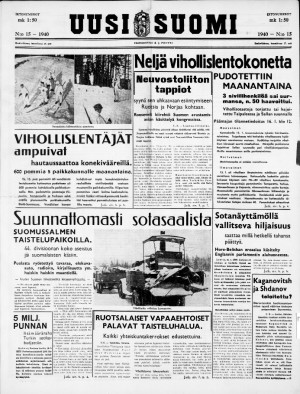Possibly I have involuntarily given a false picture about the enemy army. Saying false, I mean too joyless. I probably have already said that the 44. division carried with themselves a well-equipped movie projection car, there were also many exquisite radio receivers. It is, however, up to the military historians to find out, who the audience would have been and what might have heard from the radios. But it is certain that everybody was free to read literature: the road sides were full of books with the name "Istoria kommunisti" — the history of Communism. You certainly could expect more to come, because this book of over 300 pages and a big-sized font was "Kraktii kurs" — a short course. Also a book named "Lenin and Stalin" was abundantly available and more over, a gunner's manual. I would have taken one of these as a souvenir but there was too much see and I am not fond of thick books when I have to carry them for kilometres.
Kivimies.
The Epilogue (in Russian) on the history pages describing the fate of the Ukrainian 44th division in Suomussalmi. Machine assisted draft translation into English.
Back to the Winter War
To the press review.
Finland in Soviet foreign policy, 1939-1940. Documentary material of the Commissariat for Foreign Affairs of the Soviet Union and other sources.
